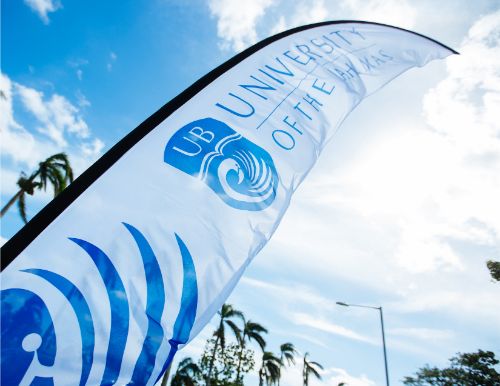|
From:TheBahamasWeekly.com Community
Nassau, THE BAHAMAS—With over 1,000 of its courses for Spring 2020 currently being taught online, University of The Bahamas (UB) was forced to kick its remote education into high gear after the first case of COVID-19 was confirmed in The Bahamas in March 2020. Although the full transition to remote operations, including administrative duties, happened one day after the dreaded announcement, the institution is still trying to navigate the challenges of an online versus a face-to-face learning environment. “Currently, our faculty members continue to teach online. We are getting ready for our registration for our summer sessions—again online—and we are also accepting students into the university for fall 2020,” UB President Dr. Rodney D. Smith said. UB’s transition to remote operations took effect on 16th March for all of its campuses, centres and business operations in New Providence and Grand Bahama. That will remain the status quo until further notice, Dr. Smith said. The switch was easier for UB than most other operations because the University had commenced a strategic transition to online teaching and processing almost two years ago. A key part of that was the implementation of the Ellucian Banner system, an enterprise resource planning (ERP) software used in colleges and universities around the world. “Faculty members have transitioned and their grades are also in the Ellucian Banner system. What really pleased us tremendously is that we completed our financial administration and our student records transition last year so that the university’s operations could continue without interruption,” President Smith noted. Yet, while the University has been able to continue most of its course offerings online, the matter of practicum elements is a work in progress. For instance, teaching practice, kitchen classes and internships have been suspended. A decision still has to be made about laboratory and practicum courses. Dr. Smith admitted that there have been certain challenges since the global pandemic caused a change in the status quo; some students do not have access to devices, software and technology to continue their classes remotely. Therefore, quick adjustments had to be made. Students who are eligible to do so may apply for an Incomplete grade and, if approved, can complete their classes later. The deadline has been extended for students to withdraw from a class without incurring academic penalties. Also, UB’s Academic Senate is reviewing another course of action to assist those students who might still be facing difficulties. “What we’re finding is that since this is so new to all of us too, you cannot possibly predict all of the possible challenges,” said Dr. Smith. “But you have to be prepared that as soon as a challenge comes to light, you’re ready to act quickly to resolve those issues. “As soon as we encounter an issue or a challenge we have a plan of action to put in place immediately. And that is what University of The Bahamas has been doing.” In this new environment, higher education institutions all over the globe are re-assessing their revenue models. UB is no different. “This is telling us that we can actually offer degrees online a lot faster than we thought we were able to,” said Dr. Smith. “Everything has a silver lining. What is happening in this situation is that we are seeing opportunities out of our challenges. And these opportunities have been presented, like the global online education programme, the online degrees that we can offer to Family Islands as well, people throughout the Caribbean-South America, Central America, North America, Europe.” The current international crisis has prompted a new level of agility and adaptability. “If we were in the same position that we were in say, four years ago, we probably would have had to shut down the entire institution,” noted Dr. Smith. “But because of the progress we’ve made and then moving very rapidly, we are now in position to function—and I’ll be honest with you, we’re actually functioning better than quite a few institutions globally, that have been in existence for hundreds of years.”
|
